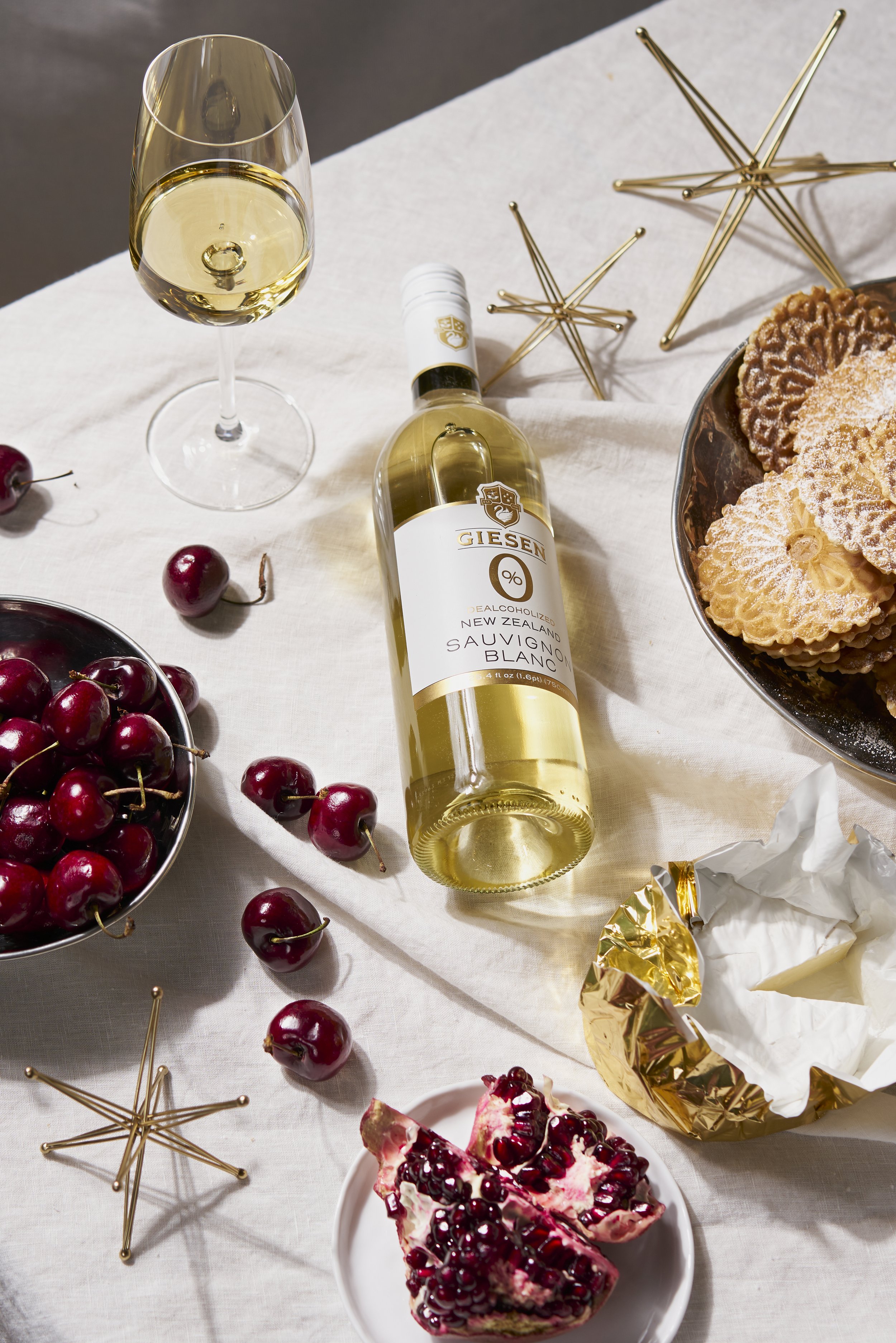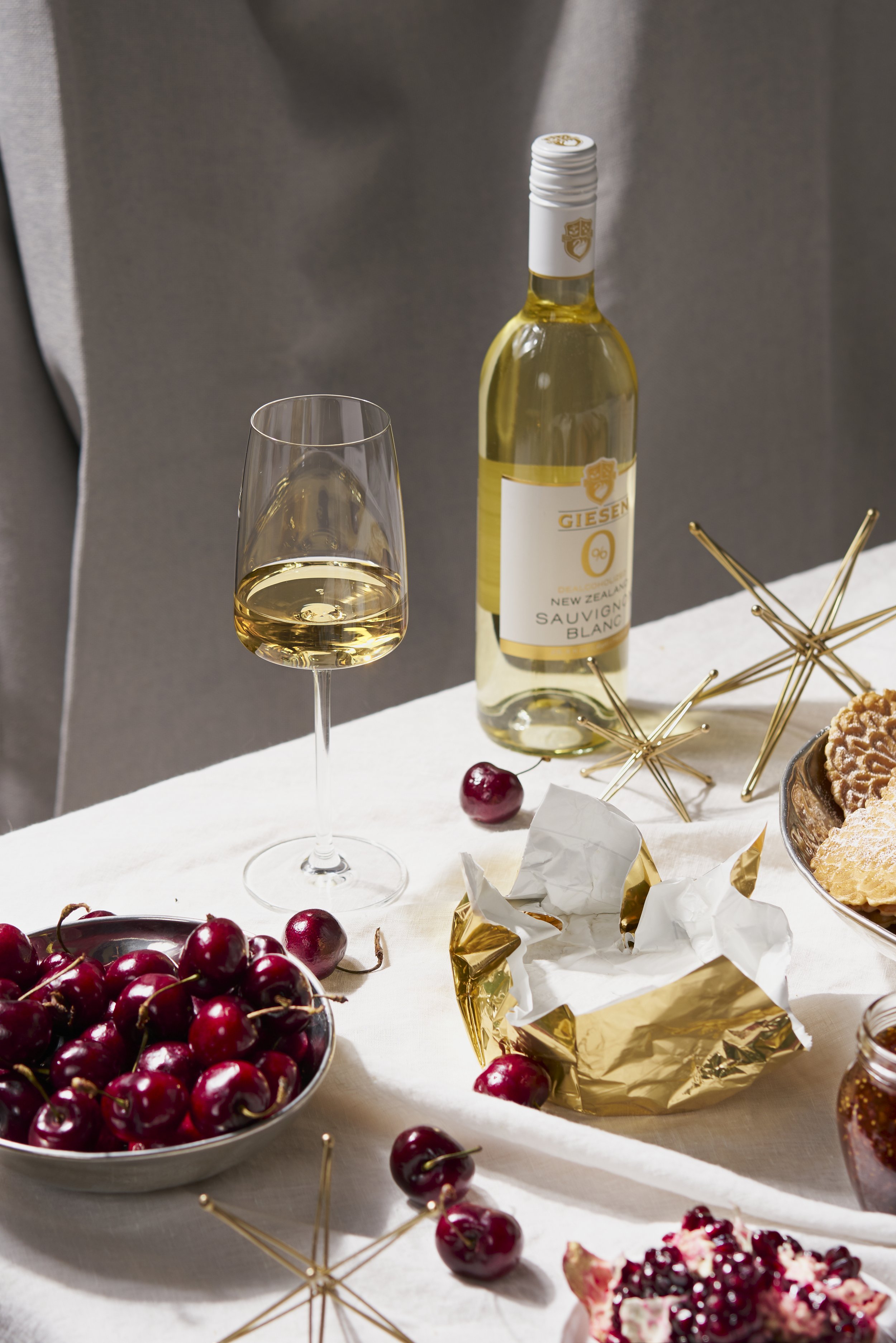1 Year of Drinking Alcohol with Intention: How to Reduce your Alcohol Intake and Increase Your Beverage Enjoyment

Why you should consider revisiting your relationship with alcohol to make it more intentional and how to do it.
This time last year, I wrote a piece on how pregnancy changed my future relationship with alcohol. Being without alcohol made me realize the many times I consumed mediocre drinks, or maybe one drink too many, past the point of enjoyment. I considered myself quite moderate with a particular palate. So, I vowed that my post-baby alcohol consumption would be more intentional.
Here’s the thing: it actually stuck. My alcohol intake drastically reduced this year compared to pre-pregnancy. From a health practitioner perspective I was curious if I would feel the desire to ‘make up for lost drinks’ from the year before. I didn’t…at all. My year of drinking has been intentional. When I chose to drink, I found myself attracted to wines, beers, and cocktails “with opinions”. That means, any time I chose to drink, I wanted something that brought an attention to different flavors and aromas. I wasn’t going to compromise. Even to the point where we brought our own specific wine preference to a winery where my family was having a gathering (sorry).
It also meant I improved my mood literacy. I learned to ask myself what I really wanted or needed instead of auto-drinking. I figured out if I was tired, or stressed, or overwhelmed, or mad and addressed those emotions. As much as we all like to pretend, alcohol doesn’t really ‘fix’ any emotion. Even if it does temporarily, it also comes with a temporary hangover, or dehydration, neurotransmitter changes, mood changes, etc. At that point, you kind of have to wonder if it was worth it.
So whether you’re going into the New Year with the intention of participating in the Dry January of British origins, or a standard American resolution to overhaul your health after a holiday of bacchanalian proportions with an extreme detox challenge, there are benefits to focusing on making your relationship with alcohol more intentional.
If you’re worried about “rebound drinking” (like I mentioned earlier), Dry January has actually been associated with positive behavioral changes related to drinking, but has not been shown to lead to more drinking later.
Why Reduce Your Alcohol Intake With a Reset:
Improve Your Mental Health:
While arguably not ‘fun’, you can do a lot of internal exploration in this process. By asking yourself when and why you drink alcohol, you’ll learn more about your behaviors when sad/mad/stressed/joyous. The data isn’t bad or good. It’s just a road map to understanding how you can better provide what’s needed to yourself to get yourself back on course. When alcohol consumption becomes automatic, there’s something else going on, which is exactly why a 2021 study found a link between excessive drinking and mental health ‘problems’ during COVID. Liquor sales in the US rose 54% in late March 2020 and by the end of April, online liquor sales had skyrocketed almost 500% . So while you can temporarily feel better (due to endorphin release triggers), it doesn’t last. Using alcohol as a coping mechanism can eventually cause depression and anxiety to get worse.
Improve Your Sleep/Energy:
Yes, initially you think alcohol helps you fall asleep better…but it usually leads to a restless sleep. When your body processes alcohol, it can mess with your REM cycle. By taking a break, you may find yourself more well rested with an energy boost during the day.
Improve Your Skin:
It’s hard to stay hydrated when drinking alcohol. Drinking can also speed up skin aging and trigger breakouts.
Improve Your Nutrition:
This is simple input math. If you’re been taking up ‘space’ internally with drinks and not focusing on nutrition, you may not be giving your body what it needs from a macro/micronutrient perspective. If you’ve also restricted food based calories to account for drinking calories, you’re working at even more of a disadvantage.
Improve Your Heart Health:
Sadly, heavy drinking has a significant amount of ties to heart problems. Those who are heavy drinkers are nearly twice as likely to have a cardiovascular ‘event’ within 24 hours and up to six times more likely to have an event within a week compared to those who don’t drink.
How to Reduce your Alcohol Intake & Increase Your Beverage Enjoyment
1.Cleanse The Palate:
In order to assess whether you’re enjoying your go-to drink or not, you have to give your palate a rest. I think 2 weeks minimum is helpful to go away from eating/drinking something and come back to it to reassess. You might find you don’t enjoy that beverage as much as you thought you did. The reality might be you enjoy the ritual itself. Post pregnancy, I found that a handful of my drinks in rotation just didn’t do it for me anymore and many of the drinks I said ‘yes’ to while with others, I didn’t enjoy at all. Instead of saying yes to most wines offered if we are at a family member’s house, or at a restaurant with limited options, I just stick to something non-alcoholic.
2. Tie Drinking To A More Meaningful Ritual:
Whether it’s a Friday night viewing of the latest episode of the Great British Baking Show in cozy clothes, or a Sunday brunch Bloody Mary, deciding to have an alcoholic beverage in conjunction with an experience can make it more enjoyable. Often, drinking alcohol can shift into an automatic part of a task to wind down (while hurriedly cooking dinner, while watching the news, etc). When drinking becomes automatic and not enjoyable, it becomes questionably problematic.
3. Embrace Additive Wellness:
You can look at this choice as reducing alcohol, or adding in new non-alcoholic beverages you love. When I first wrote about the concept of additive wellness, I described it as adding to crowd out the negative.. And while I certainly don’t consider alcohol negative, some of the current behaviors surrounding it can be. Enjoy the research and testing process of finding a non-alcoholic beverage. You can try brewing your own kombucha, finding a tea you like, or finding a ready to drink beverage like Giesen.
Giesen is our go-to dealcoholized wine. It’s a solid product because it’s created by a winery and made available without alcohol through a specialized process.
HERE’S HOW THEY MAKE ZERO-ALCOHOL WINE:
Produce full strength Marlborough Sauvignon Blanc or the New Zealand Rosé, going through the entire winemaking process like usual.
Use advanced spinning cone technology to remove the aroma and then the alcohol.
Collect the aroma and recombine with the wine to keep that distinctive nose.
Test the final blend and ensure the same weight and mouthfeel remains with Marlborough Sauvignon Blanc grape juice or Rosé and wine aroma.
Result? Zero alcohol wine with substantially 55% less calories than the closest wine alternative and 85% less calories than traditional wine. Most importantly, you can have a glass or two and feel completely fine to deal with any responsibilities you have later. Taste, yes. Hangover, dehydration, general off feeling, no.
The process of trying something new is good for you! It can appeal to those who like the fun of new experiences, or those who like to research and compare (if you’re into enneagram that’s a type 7 and a type 1 or sure).
WHERE CAN I BUY GIESEN’S ZERO ALCOHOL MARLBOROUGH SAUVIGNON BLANC?
4. Change your Scenery:
Habits are tied to cues like location. If you’re struggling to adjust your existing habit of routine drinking, change your scenery. Go for a walk outside, or head to a different room in your home. If you’re alone, call a friend to hang out. A quick change can help brush off a routine desire if it arises. Remember, you can also grab a non-alcoholic beverage to go! There’s nothing stopping you from having a tumbler of kombucha, or even a dealcoholized wine like Giesen sitting on a bench watching the sunset or taking a stroll around the neighborhood.
5. Find a Hands On Hobby:
Literally hands on. Sometimes the physical act of holding a drink can help trigger your brain to think it’s starting to relax after a long day. So keep your hands busy to help the unwinding process (and TBH, it’s impossible to drink if you’ve got your hands busy). Think of embroidery, sketching, learning close hand magic (I don’t know your life). Research has found that creative moments can help spark feelings of calm and contentment or reduce stress.
6. Make a Mood Menu:
Write out your most common emotions you feel that are associated when you decide to drink. It could be when you feel like you need to decompress and relax, feeling anger, sadness, loneliness, celebration and being social, etc. People choose to drink to regulate mood, especially when it helps to temporarily sooth negative emotions. But ask yourself…is drinking actually going to help you fix that feeling? List out what will help you feel better with those emotions. If you’re mad, would it be helpful to write? Would it be helpful to talk to a friend? If you’re feeling social, could you switch your social activity to going on a hike and be just as happy? If only it could be as ‘easy’ as ‘fixing’ an emotion with a beverage! It’s not actually the solution and it will take a little self analysis to figure out what is.
The Bottom Line
We love wine, cocktails, beer and the ritual of drinking in our home. But it’s always worth reflecting on rituals and habits from time to time. Use this guide as a check-in to see if your relationship with alcohol could use an adjustment and cheers to drinking with intention in the New Year.
Dietitian Nutritionist and cookbook author sharing flavor-forward recipes and simplified science-driven wellness.









